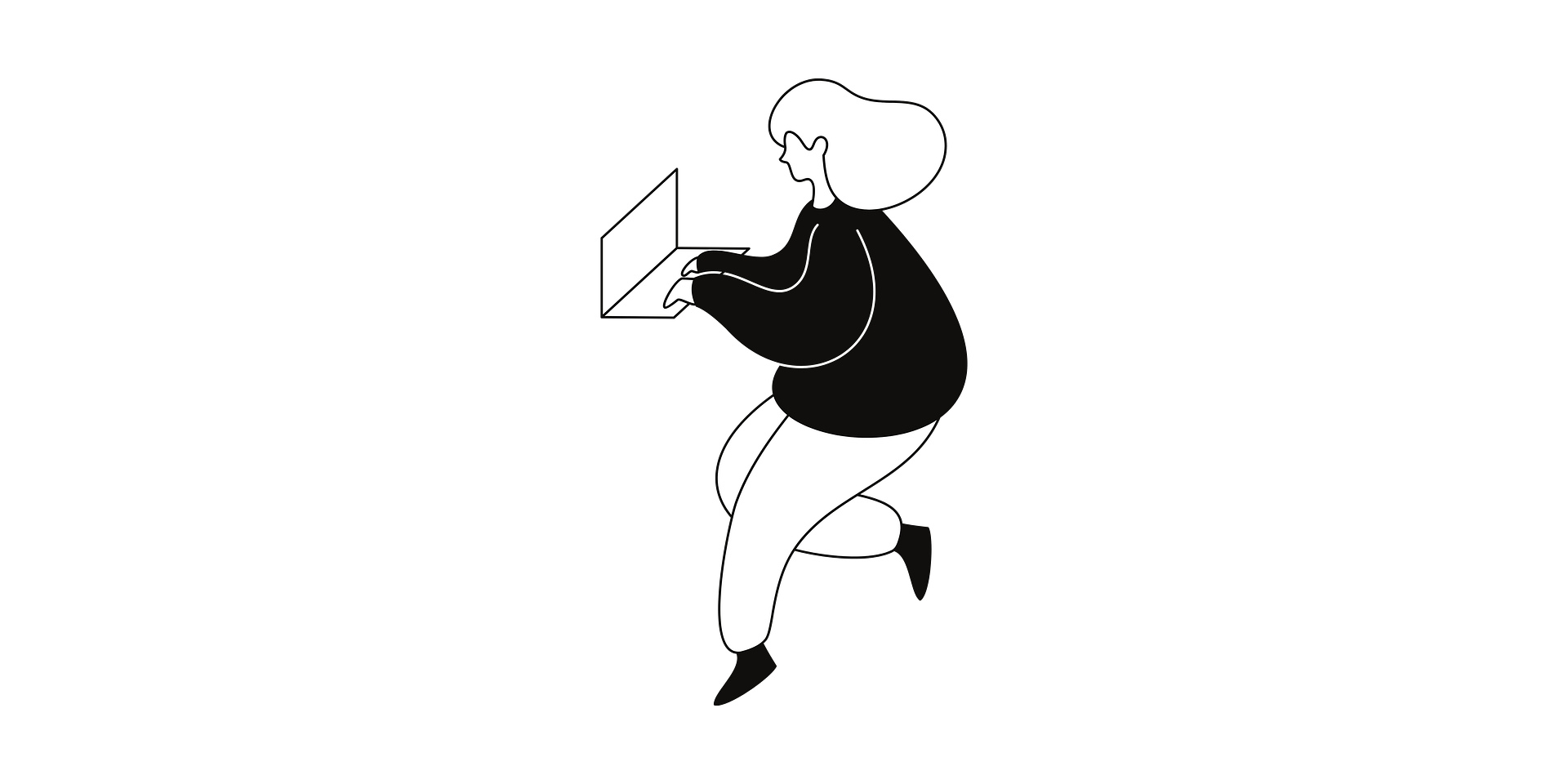
I went into the Study Date with an open mind, excited to be a part of this type of research work. From my previous municipal experience, I understood the importance of research into policy and decision-making, and was thrilled to see an online session of this kind for arts workers amidst the pandemic. I was exposed to some of Jeanne’s work in the past and, after watching Mass Culture’s IGTV video with Jeanne talking about her research, I was sold.
Having seen Ravi Jain’s A Brimful of Asha over a year ago, which prompted me to find out more about the theatre company behind the production, I felt Why Not Theatre to be an excellent example of what organizational structure we should aspire to see in the future. I was therefore all the more enthusiastic to attend this Study Date as it meant listening to their Executive Leadership team, including Ravi, Owais Lightwala and Kelly Read.

The Day Of: Research Girl, Interrupted
Self-proclaimed “Research Girl, Interrupted”, Jeanne began her research pre-pandemic, exploring the best approach for Canadian arts organizations to structure human systems and people strategies to respond to the digital age. And then Covid happened. Jeanne framed this Study Date as a pre-study to the initial research project; she tasked us with looking at how what we’re doing now – given Covid – could help shape the future of the Canadian arts industry.
In other words, how should we run our arts organizations holistically in a more digital world? The one we, purely by chance, pivoted to overnight back in March.
The need to transition to online organizational structures has happened (unexpectedly and with incredible speed) and it’s probably here to stay. However, for many organizations and institutions in this industry who are dealing with the immediate fallout of the crisis, their needs are limited by their capacity. So what does this mean for the future? And with Covid forcing this shift on us overnight, how can we look at what’s happening now as an opportunity to reflect on what we ought to take with us, and what we should leave behind?
Can we use what’s happening now to explore what arts organizations should look like in the future? And while we’re at it, can we examine how arts organizations were set up in the first place? Why have we chosen the models currently in place, and are they even working – especially in this new-ish digital age? We know the systemic problems arts organizations face – can we reflect both on the now and think about the future we want in order to change these systems? How can exploring the now (Covid) allow us to also explore the future – five, ten, twenty years down the road?
Ultimately, Jeanne’s Study Date reinforced the need for this research to be done – which is what Mass Culture is all about regardless. It has solidified the requirement for an overarching understanding and strategy across the country for how we look at arts organizations: the research that will ultimately define policy and decision-making with our funders, and will reflect onto our audienceS. The Future of Work Study Date outlined many of the resolutions we arts workers know to be true, and highlighted what research must be done and what documentation must be collected to build an evidence-based case for what many of us know, deep down.
In this study session, we explored 5 topics with guiding questions through the lens of Edward de Bono’s Six Thinking Hats method:
The Future Institutions
The Future Leadership and Decision-Making Model
The Future Arts Worker
The Future Office Space / Remote Working
The Future Arts Sector: do less and get paid more?
The answers that came back in how we could reframe the future of the topics were unsurprising. They’re notions I’ve heard from arts workers for years, but continue to be placed on the back burner because they don’t fit into the models of how we expect organizations to run.
Ultimately, the answers reflected what Ravi Jain, Kelly Read, and Owais Lightwala from Why Not Theatre recalled about their venture into organization-building during the in-field notes portion of the session. Sometimes we actually need an entirely new system when we’re struggling to fit into an existing model of the way we work. We need human-centred organizational design that is compassionate and exploratory – just like the art we represent. The current system has not proven to honour stability or sustainability for the industry, and testing new methods of working, due the pandemic, has been the first step in seeing how we could operate differently.
When Jeanne pulled themes from the pre-session survey, she quoted staff who have heard from artists that receiving CERB is the first time they have had a stable income. Although this is not going to be a universal experience, the sentiment stuck with me immediately – it is worrisome. This is an issue that needs to be dealt with across the board. And Jeanne LeSage and Mass Culture’s project in exploring this research is a more fundamental place to start than ever.

Back to the Future
I think about everything that people miss during this pandemic – events, concerts, connection. I think of what we’ve turned to in order to occupy ourselves with our free time at home (creation, entertainment). And it’s hard work. Many of the solutions we brainstormed included ideas on increasing the value of that work, and the amount of time that goes into it. With so many organizations working to just keep the lights on, how do we plan for a better future – a more stable one in order to increase this value? It’s clearer than ever that we need to think about this future, and think about how we adapt to this digital age. Jeanne is brilliant in this foresight, understanding that the pandemic is a test of creative working methods, and at the same time, is capturing that information to truly answer the “how” of it all.
This is only the beginning of how we look at the future of work. This session is a necessary first step in that exploration – not only for the research being done, but for all of us in the arts and culture sector.
What future do we even want to see? Can we consider taking the big and small steps to confront the challenges our industry faces and envision the future of how we work, particularly in the digital age? We’re learning that coming together is a need, and we are in a precarious moment to track and understand what is happening, to see where we can go. This research is fundamental in responding to the digital era – to innovate and ensure the artists and arts workers have a thriving Canadian arts sector to look forward to.
